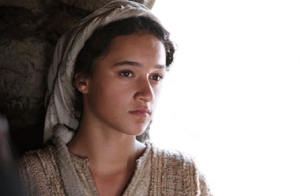 Last Sunday night, just two days after the Sandy Hook Elementary tragedy in which 27 people were murdered including 20 six to seven year olds, our church had a Christmas program. As a ladies’ choir sang, “And in despair I bowed my head: ‘There is no peace on earth,’ I said, For hate is strong and mocks the song, Of peace on earth, good will to men,” it suddenly grew exceptionally quiet. I think that everybody who was listening to the words was thinking of the families and children in Connecticut. Many Christians have been struggling with seeing the depth of this evil and reconciling it with their view of God.
Last Sunday night, just two days after the Sandy Hook Elementary tragedy in which 27 people were murdered including 20 six to seven year olds, our church had a Christmas program. As a ladies’ choir sang, “And in despair I bowed my head: ‘There is no peace on earth,’ I said, For hate is strong and mocks the song, Of peace on earth, good will to men,” it suddenly grew exceptionally quiet. I think that everybody who was listening to the words was thinking of the families and children in Connecticut. Many Christians have been struggling with seeing the depth of this evil and reconciling it with their view of God.
Not surprisingly, the words to “I Heard the Bells on Christmas Day” were born out of personal tragedy and national mourning. Henry Wadsworth Longfellow, the famous American poet, lost his second wife Fanny in 1861 (his first wife died in 1835) through a horrible burning accident. She was using sealing wax to preserve the locks of their little girls’ hair that she had just cut when her dress caught on fire. She ran into the room where Longfellow was and when a throw rug that he used failed to put out the fire, he put out the flames using his own body and was badly burnt as well. Fanny died the next day and Longfellow was too injured to be able to attend the funeral. At the same time, the Civil War was raging and two years after the death of his wife Longfellow received news that his son, a Union soldier, was severely wounded.
Asaph who wrote Psalm 73 struggled with similar feelings of despair in seeing evil and experiencing deep personal suffering. Instead of writing, “in despair I bowed my head,” he wrote, “But as for me, my feet had almost stumbled, my steps had nearly slipped,” (Psalm 73:2) as he tried to reconcile the evil in the world with his view of God.
But I am so glad that Asaph did not end the Psalm with those words. He explained, “But when I thought how to understand this, it seemed to me a wearisome task, until I went into the sanctuary of God; then I discerned their end.” (Psalm 73:16-17) When he went to worship and to focus on what is true about God, then he could exclaim, “Nevertheless, I am continually with you; you hold my right hand. You guide me with your counsel, and afterward you will receive me to glory.” (Psalm 73:23-24)
Longellow did not end his poem in despair either: “Then pealed the bells more loud and deep: ‘God is not dead, nor doth he sleep;’ The wrong shall fail, the right prevail, With peace on earth, good will to men.” Our hope is not that there will never be another tragedy on this sin-riddled earth, but our hope is in the longing of Advent. Not only did Christ come as a baby, but He also will return to earth as our victorious King. Every wrong will fail and true righteousness will prevail.
Tragedies like Newtown should make us weep as Christians. It should also make us pine with hope for the day when “‘He will wipe away every tear from their eyes, and death shall be no more, neither shall there be mourning, nor crying, nor pain anymore, for the former things have passed away.’ And he who was seated on the throne said, ‘Behold, I am making all things new.'” (Revelation 21:4-5)
For a moving video of “I Heard the Bells on Christmas Day” with Civil War pictures, click here.
“I Heard the Bells on Christmas Day” Words by Henry Wadsworth Longfellow, 1863
I Heard the Bells on Christmas Day
Their old familiar carols play,
And wild and sweet the words repeat
Of peace on earth, good will to men.
I thought how, as the day had come,
The belfries of all Christendom
Had rolled along the unbroken song
Of peace on earth, good will to men.
And in despair I bowed my head:
“There is no peace on earth,” I said,
“For hate is strong and mocks the song
Of peace on earth, good will to men.”
Then pealed the bells more loud and deep:
“God is not dead, nor doth he sleep;
The wrong shall fail, the right prevail,
With peace on earth, good will to men.”
Till, ringing singing, on its way,
The world revolved from night to day,
A voice, a chime, a chant sublime,
Of peace on earth, good will to men!








